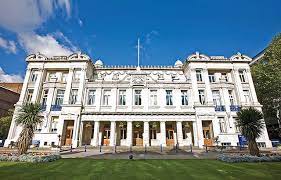Queen Mary University of London: Queen Mary professor receives prestigious Dentistry Gold Medal
Professor Williams was recognised during the Opening Ceremonies of the virtual 99th General Session & Exhibition of the IADR.
On receiving the award, David Williams, Professor of Global Oral Health at Queen Mary, said: “I’m both humbled and honoured to receive the IADR Gold Medal, the more so when I see the names of previous recipients. This is illustrious company by any measure. The award recognises efforts over the past decade to raise awareness of the global burden of oral disease and the oral health inequalities that exist. This has not been a solo effort, but reflects the work of a community of outstanding colleagues. It has been a real privilege to have collaborated with many of them.”
Professor Williams’ principal research focus is on the causes and consequences of the oral health inequalities that exist both within and between countries. This led to the establishment of a global initiative which set priorities for research that can lead to a reduction in oral health inequalities.
He is currently Co-Chair of the FDI World Dental Federation Vision 2030 Working Group, a member of the Advocacy Task Team, a member of the Oral Health Observatory Task Team and Chair of the Science Committee of the FDI. He is joint Chair of the project team, comprised of 23 international experts, that has developed the Standard Set of Adult Oral Health Outcome Measures.
Williams served as the 86th president of the IADR (2009-10), president of the IADR British Division (2002-04) and president of the IADR Pan European Region (2004-05). He was a founding member and served as president of the IADR Global Oral Health Inequalities Research Network. He also served as president of the IADR Experimental Pathology Group and on various IADR Committees.
The IADR Gold Medal is the highest recognition bestowed by the IADR. The IADR Gold Medal is presented to an individual who is a previous recipient of an IADR Distinguished Scientist Award who has then built on their original scientific accomplishments to more broadly impact science, health research, or population health through expansion of their scientific field of inquiry into other disciplines or through higher administrative positions in academia, government, non-profit or private industry.

